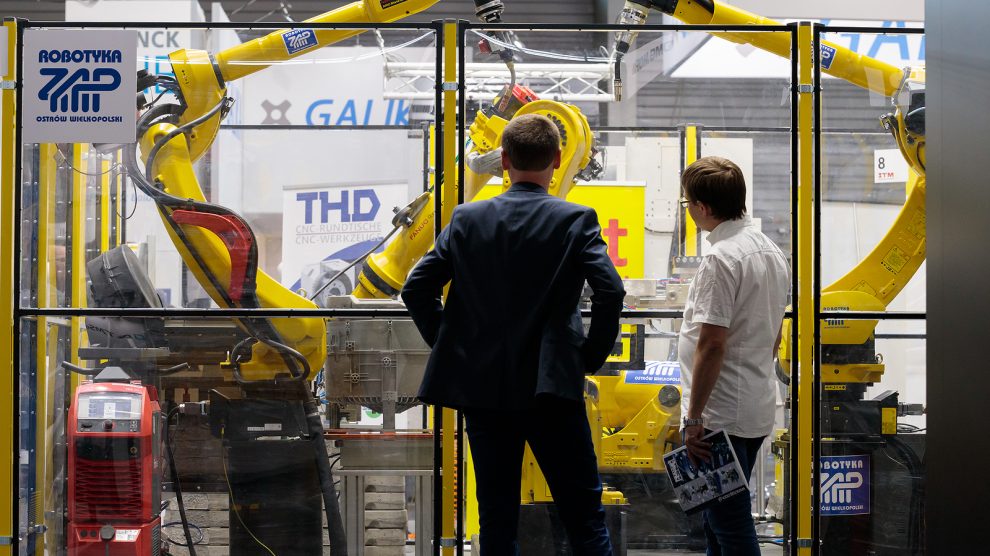Poland’s highly skilled workforce and developed IT services market make it an attractive destination for foreign investors who want to shorten their supply chains. Other parts of emerging Europe are well-placed too—if they can move up the value chain.
Nearshoring, or relocation of manufacturing, logistics, warehousing and office centres to countries closer to their target markets, began with the Covid-19 pandemic and the resulting disruption of supply chains.
The trend has been further fuelled by geopolitical instability arising from wars in Ukraine and the Middle East, as well as the trade war between the US and China. The strengths of Poland and the CEE region include access to the large European Union market and the security guarantees that come from NATO membership.
- The future of manufacturing in CEE: Transitioning to a high-tech, added value era
- CEE can put itself at the heart of the global supply chain
- As ESG moves front and centre, what does it mean for CEE’s supply chains?
These advantages mean Poland remains an attractive destination despite rising labour costs. Some analysts, however, are now urging the country’s government to promote investment more actively.
In Emerging Europe’s latest Investment Promotion Report, which looks at the effectiveness of the region’s 23 investment promotion agencies, Poland ranked just ninth—a sign that despite its undoubted success in attracting foreign investment, it can do more.
“Competing for investments using the low costs argument is no longer an effective strategy for Poland and Czechia, and may only be a short-term solution for Hungary and Romania,” says Jacek Giziński, co-managing partner at law firm DLA Piper Poland.
It’s a point that Emerging Europe has been making for some time.
“The key to success today is to invest in the future through education, technology and promoting the region as an attractive place to invest.”
Data from the National Bank of Poland for 2022 show European countries account for the largest share of foreign direct investment in Poland (96 per cent).
IT and real estate
IT and real estate investments in recent years are of great importance for companies interested in relocating, and the government should stress them in its promotional activities, DLA Piper’s analysts say.
“Increased investment in IT infrastructure and a growing number of data centres can make Poland a key player in technology and cybersecurity,” says Ewa Kurowska-Tober, partner and head of IPT at DLA Piper in Warsaw.
“The importance of IT security will continue to grow, favouring countries with a high data protection culture and advanced technological solutions. Poland offers mature forms of intellectual and industrial property rights protection that are important for investors in building competitive advantages.”
Poland also stands out against the rest of the region with its competitive commercial property stock, offering the fourth-largest amount of warehouse space in the EU, but with rental and operating costs half those of Spain and two-thirds of Germany’s.
This creates a solid foundation for strengthening Poland’s position as an international logistics and production centre. Both the greenfield investment sector and brownfield projects, involving the renewal of existing assets, have the potential to accelerate. Furthermore, newly developed office and warehouse properties meet high environmental criteria, which is of increasing importance to investors.
“ESG requirements for companies and commercial real estate continue to expand and influence the decisions of investors looking to relocate their logistics and office centres,” says Michał Pietuszko, partner and head of the real estate practice at DLA Piper in Warsaw.
“Poland is now favoured not only by its geographical location and the large availability of land, but also by the quality of its real estate stock.”
Western Balkans potential
Other parts of emerging Europe are also well-placed ro make the most of the nearshoring trend.
A recent study from the Vienna Institute for International Economic Studies (wiiw), in collaboration with the chambers of commerce of the six Western Balkan states—Albania, Bosnia and Herzegovina, Kosovo, Montenegro, North Macedonia and Serbia—analysed the state of near-shoring in the Western Balkans, and found that nearshoring is already taking place, particularly in Bosnia and Herzegovina, Kosovo and North Macedonia, where foreign direct investment (FDI) inflows between 2020 and 2023 were significantly higher than the long-term equilibrium values calculated.
Foreign industrial companies are increasingly focusing on the region, with a notable number coming from China, Japan and South Korea.
“Asian firms take a highly strategic approach, deliberately positioning their production facilities near the EU’s economic core in order to have shorter supply chains,” says Branimir Jovanović, economist at wiiw and lead author of the study.
As part of the study, 17 foreign investors in the Western Balkans were interviewed about their motivations. They confirmed the significance of locating production facilities close to the EU so as to mitigate supply chain disruptions and geopolitical risks. They also highlighted the importance of environmental protection and CO2 reduction.
“If local suppliers make progress in decarbonising their operations, we see significant opportunities for them to integrate into international supply chains and expand,” Jovanović adds.
At Emerging Europe, we use an integrated approach centred around market intelligence to help organisations understand trends and strategically position themselves for success.
Learn how our solutions can help you thrive in the region:
Company and Services Overview | Strategic Advantage.

